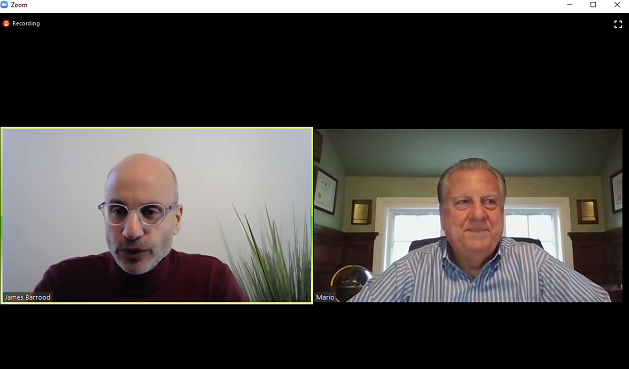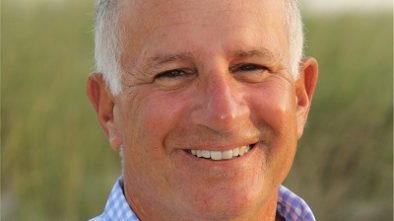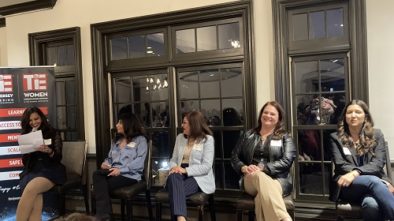During Virtual Chat, Casabona Gives Insights into What Angels Are Thinking Now
Angel investor Mario Casabona sat down with Jim Barrood, an adviser to Tech Council Ventures and former head of the New Jersey Tech Council, for an online chat on April 9 to provide some advice to startup founders who are going through tough times right now.
Casabona said that startups that have been recently funded should treat the funding they’ve received as the last round they’ll be getting for the next two to three years.
“I’m not saying the funding should last two to three years,” he said, but he advised founders to be very frugal and act “as though you were bootstrapping the company.” Pre-coronavirus, he would have given the same advice, he noted, but now he would “really push on it.” Take the most frugal perspective, he said. “Your first duty is to ensure that your company survives.”
Casabona is an active angel investor and the CEO of Casabona Ventures (Kinnelon), a micro-VC firm. He also heads the TechLaunch (Kinnelon) virtual business accelerator, which coaches startups and then holds BullPen events where they pitch before a panel of investors. The prize for winning a BullPen event is $15,000 in free services and guaranteed meetings with the Jumpstart New Jersey Angel Network (New Brunswick) and Tech Council Ventures ( New Brunswick).
Casabona, who is an engineer, sold his company, Electro-Radiation (Fairfield), to Honeywell Aerospace (Morristown). He remembered what he had to do for his own company during bad times. The aerospace industry is somewhat cyclical, dependent on politics and the economy. When the cycle was a bad one, he sometimes had to lay off employees. And, sometimes, “I had to take a cut in pay of 50 percent, and ask my employees to also take a cut in pay, like I’m currently hearing from some other companies.”
Alternatives companies may consider during an economic downturn include asking employees to cut down on their workdays from five to two or three a week, to avoid layoffs, he said.
Casabona said that startup founders should try to maintain employees’ benefits because being loyal to your employees is very important. Most seed-stage startups have two or three key employees that are essential to the success of the business. Treat them with respect and compassion, he said. “Make them feel you are understanding of the situations they’re in, personally and business-wise.”
Startup founders will want these employees back when this is all over, he said, whether it’s going to be in six or 12 months.
For companies that were planning to fundraise in February or March, and have put that on hold, Casabona gave them some insights into what angel investors are thinking.
Angels invest in companies based on their ability to market themselves and get additional financing one to two years down the road. Right now, there might not be any new investments, as angels are still in a tunnel, and while they do see the light at the end, they don’t know when we’ll get there.
“What I’m doing is fortifying my existing investments. I’m still looking for potential new investments that are way beyond my expectations,” but these are rare, he said. “Right now, I’ve got to keep some capital on the sidelines, although I’m anxious to deploy it.”
Casabona thinks that we will be out of this recession in about a year. “I hope we have a speedy recovery. It’ll be good for everybody’s 401k and everything else in my portfolio. But I think it’ll be about a year or so before it comes back. I think most angel investors are hunkering down probably for the next three to six months. And we’re going to be looking for that daylight,” he said.
“Just keep in mind that we’re still in that tunnel. Once we hit daylight, then we’re out of this crisis,” and investments will resume. “I don’t see us looking into the future for a good six months. So that’s why I’m pushing for being frugal and watching the monthly burn rate.”




